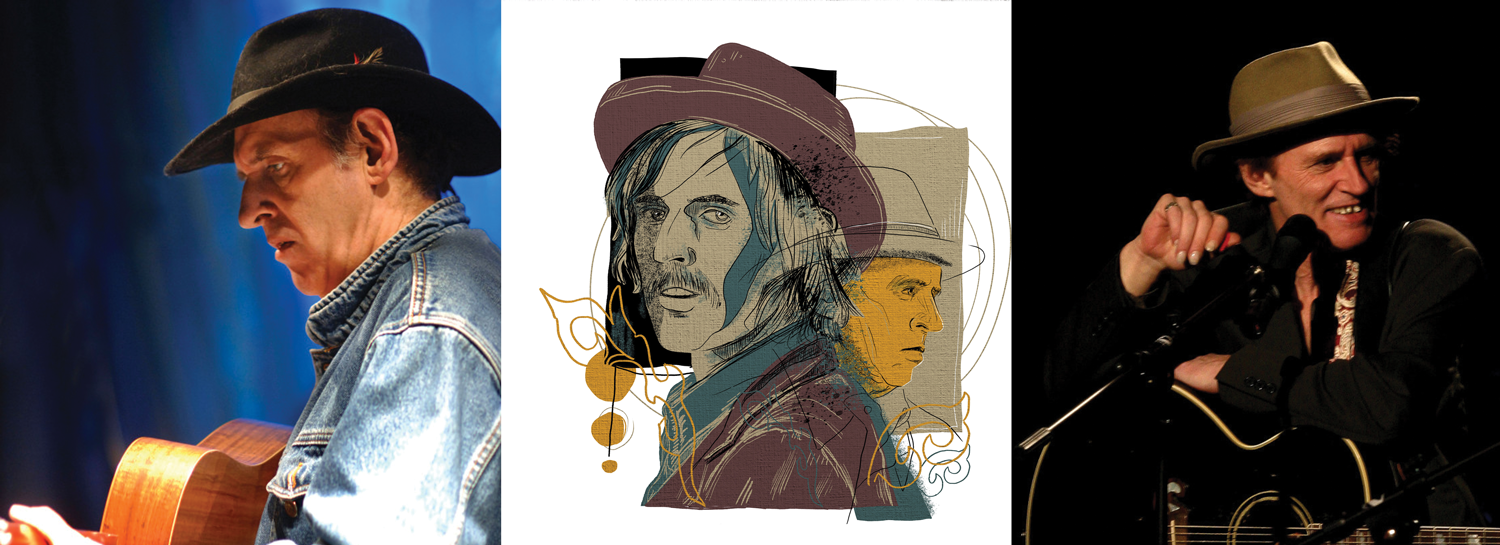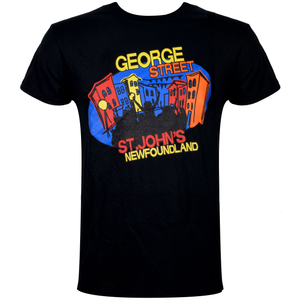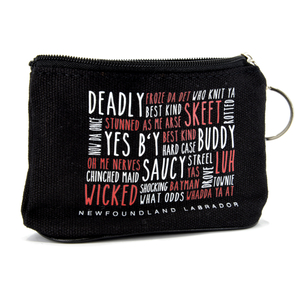New music talk with Wendy Rose
If you’re going to buy just one more Newfoundland and Labrador record this year, you can’t go wrong with Sonny Don’t Go Away: A Tribute to Ron Hynes. Produced by Alan Doyle and Cory Tetford, this compilation album features the best of the best of Newfoundland and Labrador’s music scene, performing songs by the best – a statement that’s not up for debate around these parts. A true tribute album, the liner notes made room for quotes from the musicians about the songs they perform and their connections to Ron.
Sonny Don’t Go Away opens with Hey Rosetta!’s Tim Baker performing “Leaving on the Evening Tide,” the first and only single released from the album. Tim describes the song as “personal, local, clever, catchy, and it’s somehow heartbreaking and tough and rousing at the same time.”
Amelia Curran and Duane Andrews tackle “Dark River,” while Folk duo Quote the Raven covers “Godspeed (Requiem for Gene MacLellan).”
Producer Alan Doyle teamed up with The Dardanelles for the famous and beloved “St. John’s Waltz.” Tom Power of The Dardanelles shared an amusing story from his childhood about asking his father if there was a municipal anthem. His father paused pensively before giving this Ron Hynes song that honour.
The Once reprised their version of “Atlantic Blue,” dedicated to the lost crew of the Ocean Ranger. “Cryer’s Paradise” went to Jodee Richardson, who had fun putting his own spin on this catchy, uptempo song. “When I listened to the song after Ron passed, it unfurled a different narrative,“ Jodee explained. “He had become the metaphor of the song.”
While Mallory Johnson often performs “River of No Return” as part of her set, this album’s soft-pop version sees Mallory, rather than bandmate Chad Murphy, take on lead vocals. Ron once told Mallory to record a song of his one day. “I’m happy I finally got to do it,” she shared.
Ron’s nephew, Joel Thomas Hynes, covers “Last Chance Avenue,” putting an even harder edge on this amazing country blues song.
Ennis Sisters adapted “Lonely Song,” with its “beautiful, haunting melody.” Maureen Ennis stated that “Ron had a wonderful way with words and a truly magnificent gift for telling the stories of the people and capturing the rugged beauty of Newfoundland and Labrador.”
Matthew Byrne performed one of his personal favourite tracks, “1962,” while Barry Canning covers my favourite semi-saucy track, “Where Do You Get Off.” This song is also Barry’s personal favourite. He’s been playing it live for years, occasionally even singing it with Ron himself. “I miss Ron. I miss him not being in St. John’s,” Barry shared. “You can really feel his absence, and you know, he would like that.”
Producer Cory Tetford started playing with Ron in the mid-1990s, and later engineered and performed on Ron’s Standing in Line in the Rain, the album that features Cory’s selection, “Shine Like Diamonds.” Cory explained that playing Ron’s music was “such an invaluable lesson in melody, chord structure and, most importantly, storytelling.”
The storytelling continues with “Picture of Dorian Gray,” performed by Glenn Simmons of The Wonderful Grand Band and The Fables.
Yvette Lorraine’s rendition of “Where Does Love Go Wrong” puts a woman’s touch on this soft acoustic ballad, turning it into soft jazz-pop. Yvette described Ron’s large catalogue of works as “a testament to his determination, commitment and brilliance.”
Rum Ragged takes on “House,” creating a wonderful rendition of this Stealing Genius selection. Previously, Rum Ragged covered another Ron Hynes’ song, “Dirt Poor,” on their sophomore album. When asking Ron for permission to record it, Ron gave lead vocalist Mark Manning his blessing – “so long as you all don’t shag it up.”
Shanneyganock added their classic trad-rock brand to “If I Left You Alone with My Heart,” with Chris Andrew’s strong vocals giving a new depth to this maudlin plea.
Having played “No Change in Me” for audiences all over the world, Fortunate Ones explain that with each performance, “it never ceases to make us feel closer to home.” Of Ron, the duo says, “He was a student of the human condition and was never satisfied until he had painted near perfect pictures of the pain and beauty of existing. Every image pined over, every word in its place.”
The clear, crisp, clean vocals Silver Wolf Band delivered on “Dry” felt like quite a departure from Ron’s breathy, raspy original version, but this approach worked for the Labrador band. “It’s like a mountain,” they said of their song selection. “It makes you ponder the frailty and beauty of life all at once, and we were delighted for the opportunity to paint a picture of it.”
Mick Davis chose his favourite tune, “Get Back Change,” and recorded it at The Ship Pub one afternoon. This version features three voices (Mick, Cory Tetford and Alan Doyle) and three guitars.
The record wraps up with Kellie Loder’s take on the quintessential Ron Hynes hit, “Sonny’s Dream” – the logical closer for an album of this magnitude. “When I sing about Ron’s Sonny, I think back to growing up in a small town in rural Newfoundland, feeling the same pull toward something more,” Kellie noted.
After the final notes fade out, I go to hit play again from the top. Twenty songs by 22 artists, and I still want to hear more. Yes, it’s that good.
Q&A with Tony Ploughman of Fred’s Records
When I think of Ron Hynes, I think of Fred’s Records. Working at Fred’s is how I was introduced to Ron’s music, and it’s where I got a master class in Newfoundland music from Tony Ploughman.
After nearly 40 years behind the counter at the iconic independent store, Tony is likely the biggest, deepest source of local music knowledge in the province. Through all genres of music, his opinions and tastes are revered and respected. I’ve watched in awe as folks put full trust in him to curate the soundtracks of their lives, buying records they don’t know by bands they’ve never heard of, at Tony’s undeniably expert suggestion.
Recently, Tony asked his Facebook friends to chime in on his naming of the greatest Newfoundland and Labrador songwriters who ever lived. Ron Hynes was in his #1 slot. The post – and its heated comment section – caught the attention of comedian, author and TV personality Rick Mercer. In his foreword for this album, Rick referenced Tony’s social media musing, noting that “not one person questioned the notion that Ron Hynes was our greatest songwriter. In a land of contrarians, not one soul questioned his place at number one.”
After reading Rick’s foreword, and ahead of listening to the tribute album, it seemed logical to ask Tony about Ron’s legacy.
Wendy Rose: When and where did you first hear the music of Ron Hynes, and what was your first impression of him?
Tony Ploughman: I first met Ron and the entire Wonderful Grand Band at a house party on Gower or Bond in February of 1982, at the height of the band’s popularity. My introduction to Ron’s music was a cover of his song “Just Like a Movie Scene,” performed by highly established BC folk singer-songwriter Valdy. It was played on the two main AM pop radio stations in NL. I really dug the song, the imagery and the feel. As a guy in his late teens, I could relate to the message. I first heard Ron at The Ship in the late ’80s and instantly found his style compelling. It was obvious he knew how to weave a story in song and hold the audience in the palm of his hand.
WR: Based on your years living and breathing the local music scene via Fred’s Records, what kind of cultural significance does Ron hold here on the island? What about outside of Newfoundland and Labrador, and beyond?
TP: Ron’s “cultural” significance is well documented. “Atlantic Blue,” the Ocean Ranger; “Sonny’s Dream,” a global folk fave recorded by so many, it has been thought to be an ancient Irish folk song; “St. John’s Waltz,” I think acknowledged as the official anthem of the city; and of course, his Lifetime Achievement award and many other provincial awards; a statue on George Street – all of it speaks volumes to his status here. He posthumously received an induction into the Canadian Songwriter’s Hall of Fame, the highest honour achievable – Lightfoot, Tyson, Cohen, Joni, Neil, and Stan Rogers amongst them. When Larry Leblanc, Canadian Bureau Chief for Billboard Magazine and one of the world’s leading music journalists called me for thoughts on Ron in 2003, he exclaimed that “Ron, hands-down, is the best songwriter in Canada.” I know from personal contacts that Gordon Lightfoot admired Ron’s work and, of course, Ron influenced virtually every songwriter worth their salt in Atlantic Canada.
WR: Tell us about your experience the night that Ron passed.
TP: I was at Fred’s working on the night of November 19, 2015, when I received a phone call from my friend, Andrew James O’Brien, around 7:40 in the evening, to tell me that Ron had died. I thanked him for the call and told the young staff person, who had no idea of the significance of this event. With one customer in the store, I told the staff they could end their shift. I put on “Cryer’s Paradise,” cranked the volume and was immediately struck by the prophetic lyrics of the opening track and subsequent warnings in several numbers relevant to how Ron’s last 20 years had played out. I was glassy-eyed for the next 40 minutes. At closing time at 9 p.m., just as “Atlantic Blue” was winding up the last verse, I stepped outside to bring in our sidewalk sign. Staring down Duckworth Street as far as the eye could see – darkness. All the lights out, starting right next door, yet ours were on. I was numb for a moment, and sort of glanced skyward as I whispered, “Thanks Ron,” while the final lines, “my heart is as cold as you, as you” came over our speakers.










